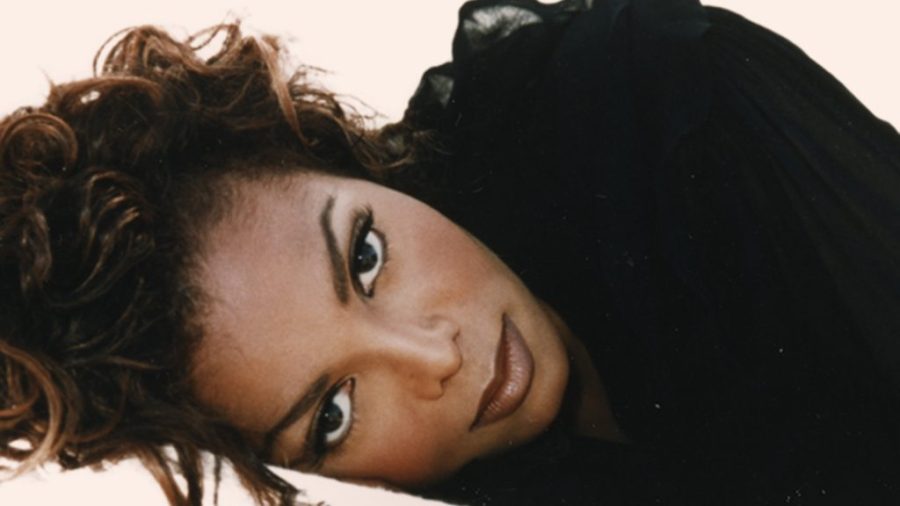Lifetime’s “Janet.” gives in-depth look into the legendary artist’s world
February 8, 2022
Born in Gary, Indiana, in 1966, it seems as if Janet Damita Jo Jackson was bound for the spotlight. The youngest of the world-famous Jackson family, Janet, in addition to selling 180 million records, has managed to maintain a quilt of privacy over her personal life, a blend of ups and downs that justify the singer’s cagey demeanor.
In the making for over five years, Lifetime’s documentary event, “Janet Jackson.,” offers viewers a glimpse into the singer’s creative process, the infamous 2004 Super Bowl incident, her pursuit of love and motherhood and the frequent overwhelm attached to the Jackson name.
The documentary features interviews with several industry elites, including singer/songwriter Teyana Taylor, film producer Tyler Perry, Missy Elliott and Ciara.
“It’s just something that needs to be done,” Jackson says while en route to her childhood home in Gary, Indiana.
Thrust into the entertainment world at the tender age of seven, Jackson recalls her early career as a time that only came about through other people’s decision-making. In one scene, the “All For You” singer describes her father, Joe, coming to her and, in so many words, eradicating her dreams of attending the prestigious Pepperdine University after finishing high school.
As horrific and depressing as it may sound, Jackson retains a sense of gratitude toward her father, without whom, she says, her career would not have come to be.
Despite facing several instances of abuse, infidelity, and drug use, Jackson manages to hold the same sentiments toward the men with whom she’s been involved or married to. The singer has married three times, including a nine-year stint with music video director René Elizondo Jr., who would later sue Jackson for $25 million in spousal support during their 2000 divorce proceedings.
Unlike most of the other men in her life, Jackson’s brother Michael, whom audiences were surprised to find out wasn’t the singer’s “favorite” brother, is a beacon of light throughout the documentary, despite the numerous attempts made by Janet to break away from his shadow. The brother and sister duo would collaborate on 1995’s “Scream,” a cry of frustration stemming from child sexual abuse allegations made toward Michael in 1993.
Following two unsuccessful albums, Jackson makes the difficult decision of firing her father, who held most, if not all, of the say-so when it came to her image, music, and branding. Birthed out of this decision was 1986’s “Control,” an innovative expression of self-actualization and freedom produced almost exclusively by production duo Jimmy Jam and Terry Lewis, who would produce the majority of Jackson’s later work. The years after the singer’s groundbreaking fourth studio album “Rhythm Nation,” released in September of 1989, are a blur, as Jackson provides little to no details on the creative processes behind 1993’s “Janet.” and 1997’s “The Velvet Rope.”
Jackson’s extensive acting career is also discussed in the documentary, with Jackson revealing her disliking of being on the popular TV show “Fame,” and shining a light on her on-air chemistry with late rapper Tupac Shakur, who co-starred with her in the 1993 film “Poetic Justice.”
Producers were able to successfully coax the singer into a conversation about her “wardrobe malfunction” at the 2004 Super Bowl but failed at deviating from what has already become common knowledge in the media world. However, Jackson did reveal that during one phone call with Timberlake she advised him to stay quiet and let her take the blame and incurring consequences that would stem from the incident.
Perhaps the most moving portion of the documentary is the singer’s stepping into the world of motherhood, the energy of which is defined by Jackson’s on-camera decision to shield her son’s face, a testament to not only Jackson’s need for privacy but also her experiences (good and bad) with the media. In 2016, after announcing her pregnancy, Jackson, then 50, faced a mountain of ridicule from several media outlets, with many of them questioning whether the singer was too “old” to bear a child.
Jackson is currently working on her twelfth studio album “Black Diamond,” which was slated for a 2020 release and an accompanying tour of the same name but was delayed due to the COVID-19 pandemic. A clip of one of the album’s tracks titled “Luv I Luv” was played during the ending credits of the documentary’s conclusion.
“Janet Jackson.” shows a side of the legendary artist that many, even with sheer luck, haven’t been able to tap into. Though the documentary does “spill the tea” on all of the topics that blogs and fans alike want to know about, Jackson remains an enigma, and rightfully so. For a person who has survived nearly 50 years in an industry that chews and spits out artists like cheap takeout, Jackson remains a force to be reckoned with.


